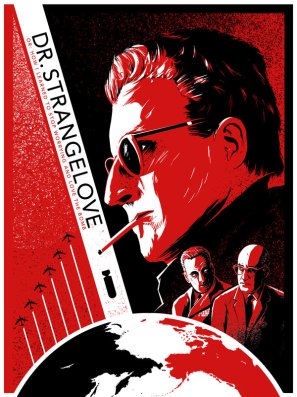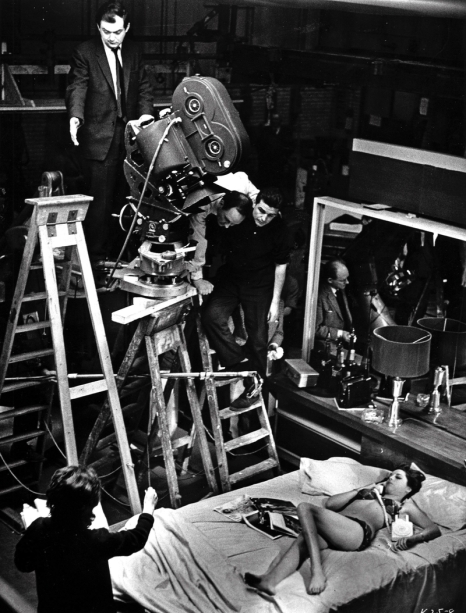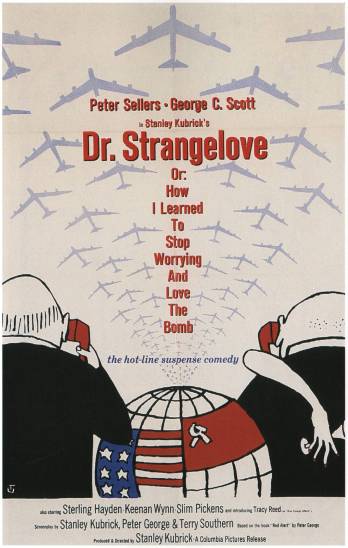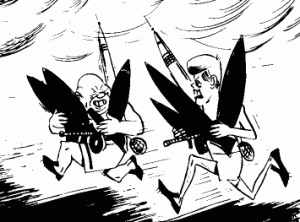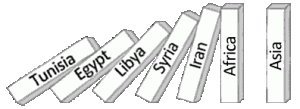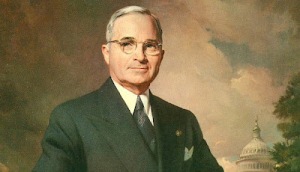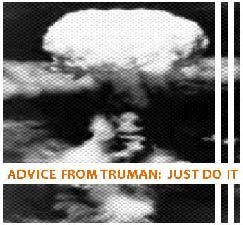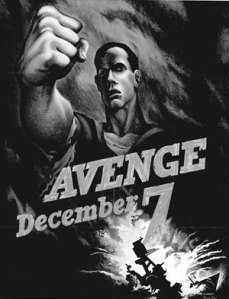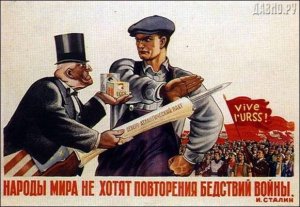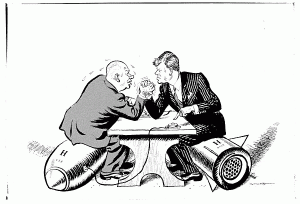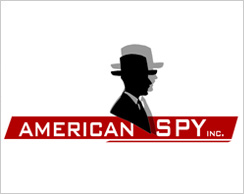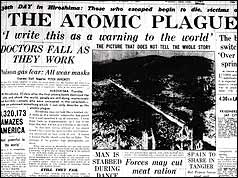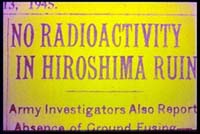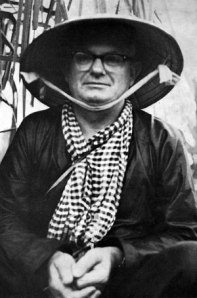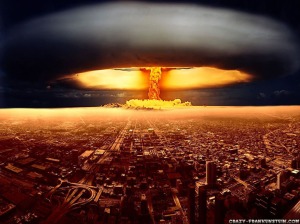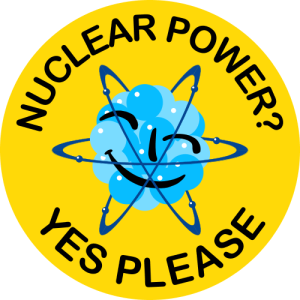“Mankind is petty, selfish, aggressive and short-tempered, and we will demonstrate these tendencies in the utilization of any technology that is available to us.” Philosopher Thomas Hobbes may be right, and Stanley Kubrick’s amazing film Dr. Strangelove represents this thought perfectly. The movie to me was an absurd satire on our modern nuclear society. As Roger Ebert put it, “Dr. Strangelove’s’ humor is generated by a basic comic principle: People trying to be funny are never as funny as people trying to be serious and failing.”
Creating a weapon of the magnitude of an atom bomb is an act of insecurity and national xenophobia. Everyone in the world is ironically less safe because the inventors of the bomb sought to make their own countries more safe.
Every character that comes to mind demonstrates ridiculous egotism and oblivion to all interests but his own. Take, for instance, how everyone is concerned with the ratio of men to women in the bunkers. Even after they have screwed up so badly that the entire world is in ruin, they are concerned only with their own sexual gratification.
Kubrick portrays our vulgar base tendencies in a very Freudian manner through phallic symbolism. I feel like the movie is pretty much summarized by the scene where Major Kong plummets to the ground with a giant atomic bomb between his legs. The arms race becomes a metaphor for who has the biggest penis, the US or Soviet Union?
The seemingly random line at the end of the movie, “Mein Fuhrer! I can walk!” I perceive as a cry of victory; Dr. Strangelove represents crippled fascism. If thought about this way, the movie seems to infer that Fascism is not dead, but crippled and waiting for the chance to “strike” again. So the film shows the irony in the fact that the US and Russia, after defeating fascism, built nuclear weapons which represented rule by military force and the possibility of mass holocaust to an even greater extent than the Nazis did.
This film shows that blundering politicians are just actors made to look in charge of things. In reality, the military ran the show and there was nothing anyone could do in the end to save them from the giant military industrial complex.
The absurdity Kubrick is trying to convey is that we created weapons that can destroy the planet, and the men in charge of them are flawed, as every human is. It’s tragically humorous, and hits close to home.

